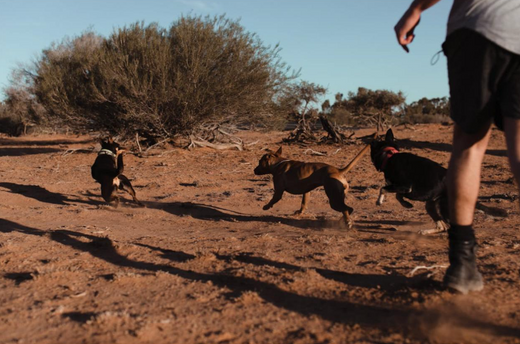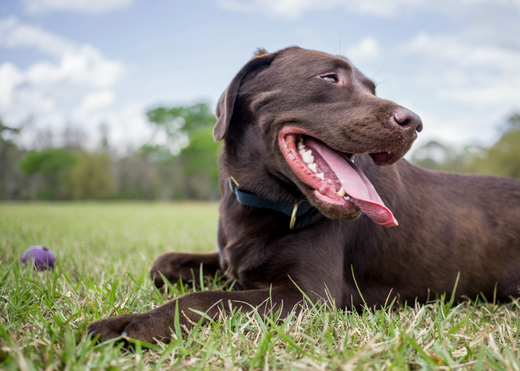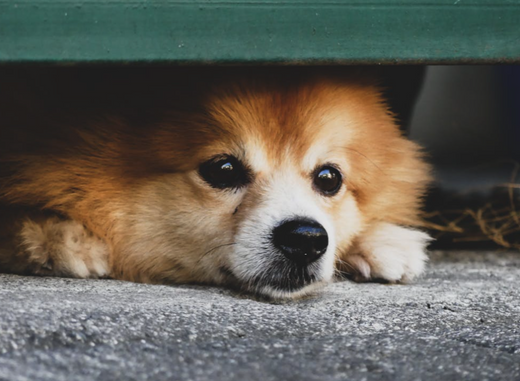
Why Dogs Run Away and How to Prevent it
Dogs are curious, adventurous creatures by nature. Whether they're chasing a squirrel or sniffing their surroundings, our furry friends are constantly taking in new information about their environment. In some cases, though, their adventurous nature can put them in harm's way. If you've ever wondered, "Why did my dog run away?" you're not alone.
In this guide, we'll help you understand why dogs have the urge to roam and teach you helpful tips for keeping your pet safe and sound. Here are the answers to all of your questions, like "Why do dogs run away?" and what you can do to prevent it.
Understanding Why Dogs Run Away
There are many possible reasons why a dog might run off. We'll explore some of the most common reasons to help you better understand your dog's behavior.
Instinctual Behaviors
Dogs are highly driven by instinct. As innate hunters, they will often entertain themselves by exploring new territory and seeking out prey. Moreover, if your pet isn't spayed or neutered, they might run off in search of a potential mate.
Boredom and Lack of Stimulation
Dogs have a strong need for mental and physical activity, and if they aren't getting the stimulation they need, they tend to seek it out themselves. This can lead your dog astray in search of excitement and novelty.
Fear and Anxiety
If your dog is faced with a stressful or scary situation, they might run away to escape it. A common trigger for many dogs is loud noises. If you're asking yourself, "Why did my dog run away?" It might be because they heard a sudden, loud noise and felt the need to distance themselves from it.
Seeking Companionship
Just like humans, dogs are social creatures. If they feel lonely or isolated, they might wander off in search of a companion. If you're wondering, "Why does my dog keep running away from home?" It's crucial to ensure that you're meeting their social needs.
Identifying Common Triggers
To better manage your dog's tendency to run off, it's important to answer the question, "Why do dogs run away?" Here are some of their most common triggers.
Loud Noises and Fireworks
Dogs are extremely sensitive to loud noises. According to research, dogs can hear sounds up to four times farther away than humans can. Sudden noises, such as fireworks going off, can trigger a startling reaction in your pet, leading them to believe they're in danger.
Unfamiliar Environments
Dogs are highly perceptive, a quality that makes them very attuned to their surroundings. If they find themselves in a new place, their heightened senses will pick up on it immediately. As a natural explorer, your dog will take the opportunity to explore the unfamiliar setting in its entirety.
Lack of Supervision
While it's important to let your dog enjoy some freedom, you should never let them too far out of your sight. In many cases, an owner's dog keeps running away simply because they failed to keep an eye on them. It's crucial to supervise your pet and limit their opportunities for escape, such as access to open doors.
Changes in Routine
As creatures of habit, dogs tend to react poorly to any changes in their normal routine. Even seemingly minor disruptions can create a stress response in your pet. Once your dog has settled into a routine, it's important to do your best to maintain it.
Preventive Measures Through Training
Here are some helpful tips for training your dog to prevent them from running off unexpectedly.
Recall Training
Teaching your dog a reliable "come" command can help significantly. Be sure to use this command repeatedly with your pet. Once you've learned how to train a dog not to run away, you can rely on them to come to you when needed.
Boundary Training
Setting boundaries is crucial to your dog's safety and well-being. In addition to establishing clear boundaries, be sure to reinforce them consistently. This will help solidify them in your dog's mind.
Socialization
While it's important to set boundaries for your dog, you shouldn't close them off from the world, either. Allowing your pet to socialize with other dogs can help them build confidence and trust in their peers.
Desensitization Techniques
Desensitization refers to the process of repeatedly exposing your dog to a trigger until they no longer react to it. When done in a safe, familiar environment, desensitization techniques can help minimize fear and stress while promoting comfort and happiness.
Securing Your Home and Environment
It's important to do your part to keep your dog safe in and around your house. Here are some guidelines for properly securing your home and environment.
Proper Fencing
The boundaries you set for your dog should be as secure as possible. Because many dogs can't help but wander off, we recommend installing sturdy fencing around your property.
Supervision and Confinement
Spending time outdoors is crucial to your dog's well-being. That said, never let them outside unsupervised. Keep a watchful eye on your pet at all times while they explore the outdoors and don't stray too far away from them.
Identification Methods
If your dog running off has become a repeated problem, come up with a way to reliably identify them. Microchipping and ID tags are just a couple of ways to keep your pup accounted for. If you're wondering, "If a dog runs away will they come back?" using ID methods can help ensure that they do.
Environmental Enrichment
Because boredom is a common reason that dogs run off, be sure to keep them mentally stimulated at home. Play games with them and talk to them throughout the day to keep them engaged.
Addressing Underlying Behavioral Issues
The answer to the question, "Why does my dog keep running away from home?" may be due to underlying behavioral problems. Common issues include:
- Separation anxiety
- Territorial behavior
- Attention-seeking behaviors
- Health considerations
Consult your dog's vet to get to the root of these behavioral concerns.
Keep Your Dog Safe and Healthy
Having your dog run off can be scary, but there are ways to manage this common issue. Understanding your dog's needs, implementing proactive measures and fostering trust can help ensure a fulfilling life for your beloved companion.








